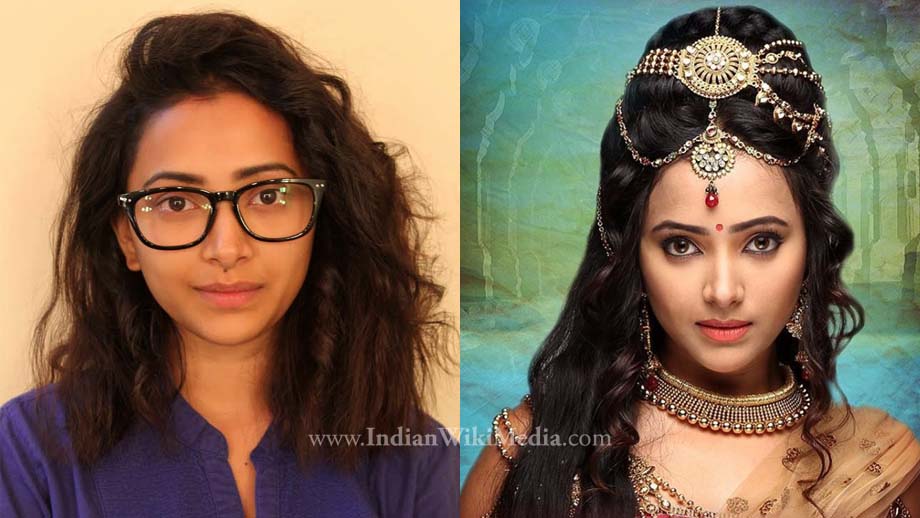I stand 5 feet and 2 inches tall, I have shoulder length hair and I wear glasses while reading. I wear loose pajamas and T shirt/kurta to the studio every day. The person you watch on the television, events or my interviews is not exactly how I look like in my everyday life.
It takes me almost an hour to get into the character of Nandni for my show Chandra Nandni. One hour of wearing a wig extension (it’s a periodical show), make up (although bare minimal), lashes to add drama to my eyes, jewellery, costume, etc. Even after all this it’s the cinematographer’s angles, camera lenses, the lighting that eventually makes me look the way I do. Is that beautiful? Maybe, it is. Because it’s a mask I wear, it’s my job. Nandni has to look beautiful on screen. It’s fair. However, what’s unfair is the definition of beauty.
Nandni has to look beautiful on screen. It’s fair. However, what’s unfair is the definition of beauty. Thanks to media (films, television and advertisement) the concept of beauty is often confused with being glamorous
Thanks to media (films, television and advertisement) the concept of beauty is often confused with being glamorous. Almost every commercial we watch on the television or read about in the magazines constantly reminds us what kind of complexion one should have, what kind of clothes one needs to wear, which hair colour looks good. It’s become a notion for not allowing people to accept the way they are. Every product that is sold constantly reminds its audience that they are not perfect, that they need to reach a certain benchmark of beauty that can make them get accepted by society. It’s a turmoil for young minds. To be able to think that what they have or how they look is not enough. Body shaming, is a crime. Why should anybody tell anybody what to eat or what to wear? It’s so humiliating!
Young girls, women (even men) who dig Instagram profiles and pages and scout make up and fashion videos online end up comparing their faces and bodies with these celebrities (models/actresses), and when they fail to look like somebody, they end up feeling disappointed with themselves. Why? Why does one have to look like somebody? Famous Victoria Secret model Cameron Russell declared at her Ted talk that “looks aren’t everything”. And I can’t help but agree with her. Self obsessing over how we look, the labels we wear, the hits we get on our pictures is only eating time. Not to mention, affecting the peace of mind. According to a Dailymail report, 6 out of 10 teenagers said that they feel lonely. And one of the main contributors to this mental fright is not being able to feel popular amongst friends. To have the latest phone, wear fashionable clothes, ride in a car and not take the public transport, being rude are all consequences of not feeling popular. This feeling of being popular is also known as insecurities and has a long lasting effect, affecting careers, relationships, life in general.
If anything needs beautification, it’s our minds. Investing in health, travel, experience, relationships is far more important than spending a fortune on a designer lehenga or a face contour palate
Our face, our body is what we have inherited from our parents, and they inherited it from theirs. We need to be proud of it. Respect it, just the way it is. When we look at ourselves in the mirror, we can perhaps see our mother’s eyes, our father’s nose, our grandmother’s smile, hear our uncle’s voice. That is beautiful. We are the nerve end of our family tree. One needs to start taking pride in that. It’s all we have and will have for the rest of our lives. And give to our next generation. If anything needs beautification, it’s our minds. Thoughts make a person beautiful. Our speech, behaviour, habits, the way we treat others is remembered, not what one wears or posts on the social media. Investing in health, travel, experience, relationships is far more important than spending a fortune on a designer lehenga or a face contour palate. Because, beauty in inward, not outward.

